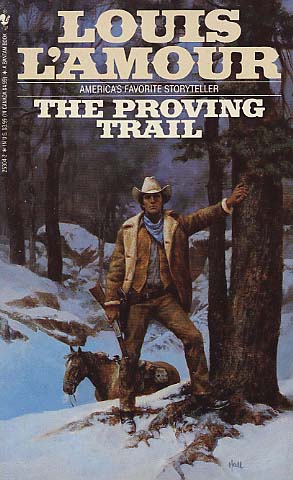
Well, I did not begin posting about Star Trek fiction as soon as I had hoped. But better late than never, right?
Today’s focus is Star Trek: The Great Starship Race by Diane Carey. If you were to type the title of the book into the search engine of my blog, you would come up with several quotes from the novel posted here. Not nearly so many as you would get if you typed in The Cherokee Trail, but you would get a good number nonetheless.
The Great Starship Race takes place in the Original Star Trek series timeline. It focuses primarily on Kirk and his point of view, with occasional shifts to McCoy’s perspective.
But The Great Starship Race actually begins from the viewpoint of Valdus, a Subcenturion on the Romulan ship Scorah. The Scorah and its supporting Swarm are out patrolling a sector of Romulan space when they stumble across an old spaceship with barely any warp capabilities. Picking up the ship, they find five aliens aboard, aliens sent on a mission of exploration from their homeworld in the hopes of finding other life in the galaxy.
The aliens are friendly. They fall all over the Romulans, they are so happy to learn they are not the only intelligent beings in the galaxy. But when the Romulan commander tries to get them to reveal their planet’s location, things fall apart. Somehow, someway, the nervous fright of the five aliens aboard the ship drives all the Romulans into murderous rages. They kill each other and destroy the Scorah…
All of them die except for one: Valdus. He is the only one to escape the conflagration, the only one to come back to sanity. He is therefore the only one to realize how dangerous these aliens are to the Romulan people.
Fast-forward eighty-six years. The Federation ship U.S.S. Hood, under the command of Captain Kenneth Dodge, made contact twelve years earlier with the people of Gullrey. Now, twelve years later, the Rey are about to be accepted into the Federation. And they are so happy about it that they are throwing a party, which will hopefully become an annual event: the first Great Starship Race.
Among the competitors are four Starfleet ships – including Captain James T. Kirk’s U.S.S. Enterprise NCC-1701.
Captain Kirk is looking forward to the race on several levels. Races are part of sailing history, so as a historian he is naturally happy to be participating in a race, the way that the sailing captains of the past once did. On another level, he is looking forward to showing off his ship – his “favorite girl.” And how can participating in a race not be fun?
He finds the answer to that question soon enough, when they are on their way to Starbase 16. The starting line of the race, Starbase 16 sends a frantic call to the Enterprise about a Romulan heavy cruiser which has crossed the Neutral Zone. It is headed for the base and transmitting interstellar truce.
What, you ask, is the Romulans’ reason for violating the Neutral Zone between Federation and Romulan space? Oh, nothing really important – they just want to join the race.
If it were not such a dangerous situation, Kirk would laugh about it. But a Romulan heavy cruiser in Federation space, whatever their proclaimed reason for entering, is no laughing matter. He finds it even less funny when he meets the commander of the Red Talon: Valdus.
And Valdus is none too happy when he sees Kirk. Loathing using view screens for first meetings, Valdus sees something in Kirk’s eyes that disturbs him. He knows Kirk is not a man who will give up, and that could be a problem.
As for Kirk, he can tell by looking at Valdus that the Romulan is not here to just run a race. He knew that before he saw him, but seeing him convinces Kirk that there is something else to Valdus’ desire to join the contest, some dangerous ulterior motive. And it has something to do with the Rey, whose planet is the finish line of the competition…
That is all I am telling you, readers. The Great Starship Race is a really good piece of Star Trek fiction. I think that it was one of the first Star Trek novels which I read. The entire Enterprise Seven is present and accounted for, though Chekov gets short shrift in the dialogue and action departments. Still, he is there. That is what counts.
I do not know if Diane Carey wrote any more Star Trek fiction. I think she did. Either way, The Great Starship Race is a Star Trek story which I highly recommend to you. So warp on over to the nearest library and see if they have a copy! If they do not, then you should request it. This is a story that ought to be on at least one set of library shelves!
Later,
The Mithril Guardian




